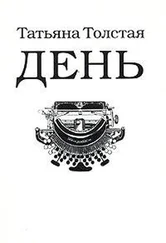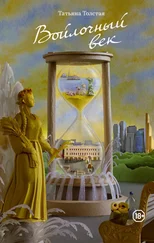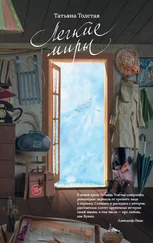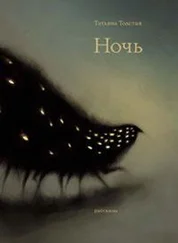She started coming to Hepojarvi just to look at Natasha, who used to go for walks with Nanny. Klavsevna struck up a friendship with Nanny. Nanny was strict—she saw right through Klavsevna’s foxlike cunning, keeping her at arm’s length. But Klavsevna was quiet, harmless, meek, and enraptured; it was the right tactic—Nanny relented, deciding to let Klavsevna be.
A year passed, then two; it was time for Klavsevna to retire, which she did obediently. Her pension was thirty-two rubles for life. In the early 1950s that must not have been so bad, but every year prices went up and her pension remained the same. Being an experienced typist, she was able to find a bit of work at first; she’d take odd jobs home even though she was terrified of getting audited. But then her eyes began to give out, and her doctor prescribed the yellow drops and forbade her to look in the dark. And she couldn’t really see that well in the daytime, either.
Another ten years passed, our younger brother and sister were born, and now they needed someone to take them for walks. Nanny was by then too old, and so she suggested to our mother her (by that time) dear old friend Klavsevna: she wouldn’t be able to manage in wintertime, but in summertime—easy as pie. And so in exchange for room and board as well as a small stipend, Klavsevna began taking the little ones on their walks.
My sister Natasha was no longer that sad doll; she’d grown up, taken up sports, her favorite being the shot put. She was a girl of marriageable age, but Klavsevna still saw in her that erstwhile lost little girl, and when Natasha would come to the dacha, Klavsevna followed her like a shadow.
§
People in our family are divided into two camps: those who were stung by the White House and those who were not. I’m in the “stung” camp. Whether I’m walking down the street or lying in bed awake, whether my eyes are open or closed, at any moment can I walk up the wooden porch stairs into the back sunroom, open the door, pass through the narrow hallway with its random boxes, summer coats—called “dusters” back then, a forgotten term now—hanging from hooks, and breathe in that air: the infusion of flowers, children’s tanned skin, household soap, and boiled milk; I can touch the railing of the staircase that leads up to the loft, feel its gray balusters, and then take a left into that room with the green-tiled Dutch stove, the one with the two errant blue tiles. It’s July. I’m five years old. Nanny says our new little sister has just been born, her name is Olya, and we’re going for a walk now to meet Mom and Dad, who are driving in with this new addition.
There is a long trek upward—it’s a serious hill, a few years later a competition-sized ski ramp will be built up there. You can see forever from the top—even the faraway shore of the blue Lake Hepojarvi is visible, the far, empty shore. No one lives there and no one can, because of the shooting range where once a day thunder is heard— l’explosion. An invisible canon fires so loudly that the house shakes and the windows rattle, and afterwards we need to invite Curly to spackle. No one has been to the shooting range but everyone knows that it’s there, beyond the hills and the valleys, beyond the marshes with the white mist, beyond the sea of fireweed, and the raspberry and blackberry bushes. We are standing at the top of the hill, looking ahead, blocking the sun with our hands: in the distance, in the outlying forest, is a remote meadow, and there, two trees side by side, like two siblings. That’s where Eden is.
Nanny leads us past the teahouse with its inebriated men, past the kiosk where Mom buys the kerosene for the Primus stove—this is still the age of firewood and kerosene, they aren’t selling gas stoves yet, and the silly mantra of “Right only: medium heat” hasn’t been thought of. We walk into the pharmacy, and there—herbs, herbs, herbs—it smells of sage, chamomile, and dried linden flowers. This is where our Yanson used to work; we don’t yet know that we will be buying his house, leaving the White House forever. Nanny picks out some kind of herb for herself, and we walk out onto the main dirt road. It’s dusty.
Here they come, here is our Pobeda coming to a halt, and inside the car are Mom and Dad, and a satchel that is our new sister; Mom moves the lace away from her red little face. This is Olya. Thirty-six years is all she will get on this earth.
§
If you look through the blue glass long enough, someone will die. Not completely, not hopelessly—after all, death doesn’t really exist—but they will no longer walk among us. You will no longer be able to touch them, kiss them, to inhale the scent of their hair and neck, to take them by the hand, to ask them a question, to look them in the eye—none of this will be possible any longer. They leave us for that gray, twilit land beyond the blue glass. By bringing my face close to it and looking long enough—through the rustling and the undulation of the garden, the swaying of the branches in the wind, through the melancholy bloom of gray jasmine and the sea of gray lilac—I seem to be able to make out their faces, their hands: they are looking at us and waving, they’ve noticed us. Perhaps there, on the other side, it’s fun for them and bright; perhaps they are playing ball or simply sailing on airships above our gardens—submerging their arms deep into the warm air and yanking flowers by their long stems, and picking petals one by one to tell fortunes. Why wouldn’t they try to tell fortunes? Perhaps from this side of the blue glass we appear to them gray and wistful, locked away and unattainable—I don’t know. But the blue glass is the window of heartache, and one oughtn’t look through it intently or for long.
§
A tragedy befell our friends, the upstairs neighbors at the White House, the ones living in the loft with the poison and the trumeau and the lilac robe: their housekeeper drowned. She went for a dip in Lake Hepojarvi, swam out into the open waters, and was sucked in by a maelstrom. I remember the frightful commotion that this news created, tearing through all the houses on our pine grove isthmus like a great gust of wind. Some of the grown-ups rushed to the lake; others, blocking the view, wouldn’t let us look. I never saw the drowned woman. Of course, that was the right thing for the grown-ups to do—I wouldn’t have let children of mine see the lifeless young maiden—but because I didn’t get to see her then, now I see her always. I don’t remember her face, I don’t know her name—there were many of them back then, young ladies looking for jobs as house staff after the war to escape the villages they detested, where there were no young men; girls yearning for love, kisses, and freedom where only barnyard work was to be had. I remember these young girls only by the smell of their maiden skin, their sweat, the cheap pink loose powder they used. Men had a different scent, they smelled of motorcycles, you couldn’t confuse the two. Young ladies would go on dates with soldiers from the nearby military base and then inexplicably dissolve into tears, quit their jobs, and disappear. There were Ninas and Valentinas; there was a Liuba, who liked to sew; a Klavdia; and a Zoya, who left behind a pink semicircular hair comb; and the beautiful Marusya, who stayed the longest—she had no suitors because of her withered leg, stricken with polio.
I don’t remember which one of them drowned because the one that did—that invisible maiden, lying on the lake’s shore, on the grass behind all the grown-ups fussing, leaning over her, and blocking the view with their legs—was all of them: Nina, Klavdia, the other Nina, and Zoya. She was all of them—lying on her back, on her side, and facedown; propped up against a tree, covered with a blanket, naked, wearing a blue wool swimsuit, or a cotton one with orange dots or tiny flowers; in her underwear—pink satin or white cotton—or, for some reason, with a long nightgown clinging to her pale young body. She was the sister Alenushka from the fairy tale, calling out from the water’s depths: “My brother, Ivanushka! Heavy is the stone that pulls me down, silky is the seaweed that binds my feet, yellow is the sand that covers my heart!”
Читать дальше






